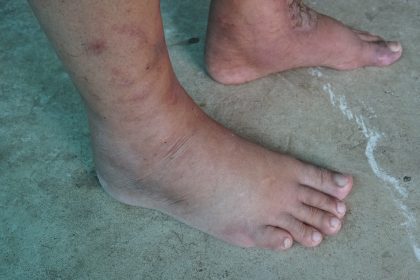Imagine your kidneys as the ultimate multitaskers in your body, working 24/7 behind the scenes like the world’s most dedicated cleaning crew. They’re filtering your blood, balancing your fluids, and keeping everything running smoothly without you even thinking about it. But here’s the plot twist your kidneys might be keeping a family secret that could change everything.
Your DNA doesn’t just determine whether you have your mom’s eyes or your dad’s stubborn streak. It’s also quietly influencing how well your kidneys will hold up over time. Some people win the genetic lottery and get kidneys that could probably outlast a vintage car, while others inherit kidneys that are more like that unreliable appliance that works fine until one day it just doesn’t.
The frustrating thing about kidney problems is that they’re masters of disguise. Your kidneys can lose up to 90% of their function before you start feeling seriously unwell. It’s like having a car that runs perfectly fine even though three of its four cylinders have been slowly failing for years. By the time you notice something’s wrong, you’re already in trouble.
The family connection you never saw coming
Your family tree might be hiding more than just old photographs and embarrassing stories. If chronic kidney disease runs in your family, your genes have essentially been playing a long game with your kidney health since the day you were born. It’s not that you’re doomed to develop kidney problems, but your genetic makeup has definitely stacked the deck in a particular direction.
Some genetic variations make your kidneys more vulnerable to damage from things like high blood pressure or diabetes. Think of it like some people being born with naturally stronger immune systems while others catch every cold that goes around. Your genetic kidney resilience works similarly, some people’s kidneys can take a beating and keep on functioning, while others need extra protection from day one.
Certain types of kidney disease have such strong genetic components that they practically run in families like unwanted heirlooms passed down through generations. Polycystic kidney disease, for example, is like a genetic time bomb that can be passed from parent to child with a 50% chance of inheritance. It’s essentially a genetic flip of the coin that determines whether you’ll develop fluid filled cysts that gradually crowd out healthy kidney tissue.
But even more common forms of chronic kidney disease show clear family clustering patterns. If your parents or siblings have kidney problems, your risk of developing them isn’t just slightly higher, it can be two to three times greater than someone with no family history.
The slow motion kidney disaster
Chronic kidney disease is like that friend who slowly becomes more and more unreliable but you don’t really notice until they’ve completely flaked out on you. Your kidneys don’t just suddenly stop working one day. Instead, they gradually lose function over months or years, compensating for their declining abilities by working harder with whatever healthy tissue remains.
In the early stages, you might feel completely normal while your kidneys are already struggling. They’re like overworked employees who keep showing up and doing their best even though they’re operating at reduced capacity. By the time symptoms become noticeable, significant and often irreversible damage has already occurred.
Kidney disease progresses through five distinct stages, each one representing further loss of kidney function. Stage 1 might have you feeling perfectly fine with normal or even slightly elevated kidney function, while Stage 5 means your kidneys are working at less than 15% capacity and you’re looking at dialysis or transplant options.
The scariest part about this progression is how long you can remain in the early stages without realizing anything’s wrong. Your body is remarkably good at adapting to gradual changes, which means you might not notice the subtle fatigue, slight changes in urination, or mild swelling that could signal kidney problems.
The genetic risk factors you can’t change
Certain genetic variations make your kidneys more susceptible to damage from everyday stressors. Some people inherit genes that make their kidneys less efficient at handling high blood pressure, while others have genetic variants that make them more vulnerable to diabetic kidney damage. It’s like some people are born with kidneys made of stronger material while others get the more fragile version.
The APOL1 gene variants, for example, are found primarily in people of African descent and can significantly increase the risk of kidney disease. Having these genetic variants doesn’t guarantee kidney problems, but it does mean your kidneys need extra protection throughout your life.
Your family’s medical history is basically a preview of coming attractions for your own health risks. If kidney disease, diabetes, or high blood pressure run in your family, you’re not just dealing with one risk factor but potentially several interconnected threats to your kidney health.
The genetic factors that contribute to kidney disease often overlap with those that increase your risk of diabetes and high blood pressure, creating a perfect storm of kidney damaging conditions. It’s like inheriting multiple vulnerabilities that work together to accelerate kidney damage over time.
The lifestyle factors that matter more with bad genes
Having genetic risk factors for kidney disease doesn’t mean you’re powerless to protect your kidney health. Think of your genes as loading the dice rather than determining the final outcome of the game. Your daily choices and lifestyle habits can significantly influence whether those genetic predispositions actually turn into kidney problems.
People with genetic risk factors who maintain healthy blood pressure, keep their blood sugar in normal ranges, and avoid kidney damaging behaviors often maintain good kidney function well into old age. Meanwhile, people with great kidney genes can still develop problems if they consistently make choices that stress their kidneys.
Blood pressure control becomes critical
When you have genetic risk factors for kidney disease, controlling your blood pressure becomes even more important than it would be otherwise. High blood pressure is like subjecting your already vulnerable kidneys to constant stress, accelerating any genetic tendencies toward kidney damage.
Even blood pressure levels that might be considered borderline normal for someone else could be too high for your genetically vulnerable kidneys. It’s like the difference between a sturdy bridge that can handle heavy traffic and a more fragile one that needs weight restrictions to stay safe.
Early detection saves your kidneys
The good news about genetic kidney disease risk is that simple blood and urine tests can detect problems long before you feel sick. A basic metabolic panel that checks your creatinine levels and a urinalysis that looks for protein in your urine can reveal kidney damage in its earliest stages when treatment is most effective.
These tests are like having a kidney health report card that shows how well your kidneys are functioning. Regular monitoring becomes especially important if you have family history of kidney disease, because catching problems early can literally save your kidney function.
The prevention strategies that actually work
Protecting genetically vulnerable kidneys isn’t about making dramatic lifestyle changes, it’s about being more consistent with the basics that support kidney health. Staying well hydrated, limiting processed foods that are high in sodium, and maintaining a healthy weight all become more important when your genes are already working against your kidney health.
If you have diabetes or high blood pressure along with genetic kidney disease risk, working closely with your healthcare team to keep these conditions well controlled isn’t just good general health advice, it’s kidney protection insurance. Managing these conditions aggressively can slow or even prevent the progression of genetic kidney disease tendencies into actual kidney failure.

















